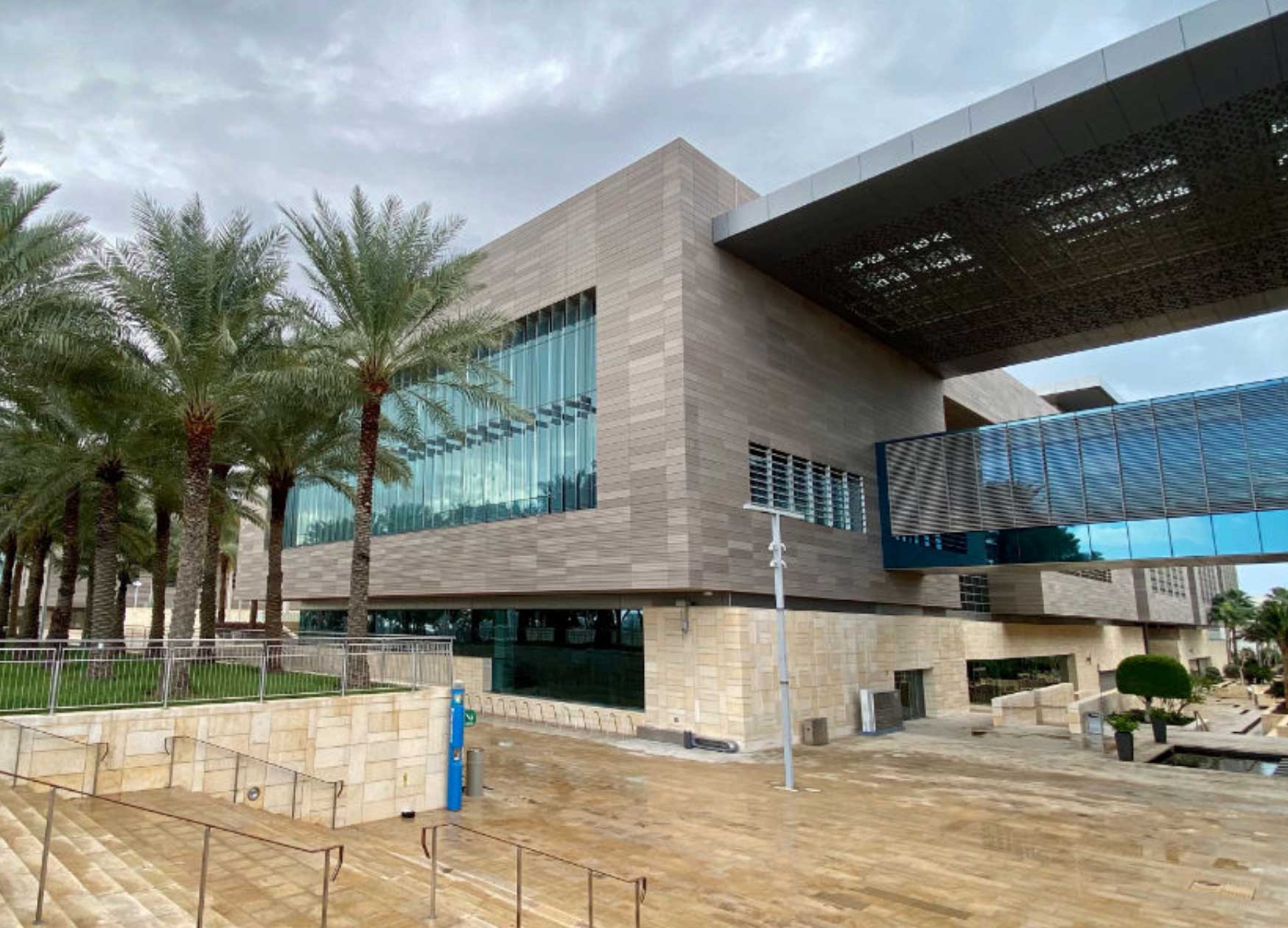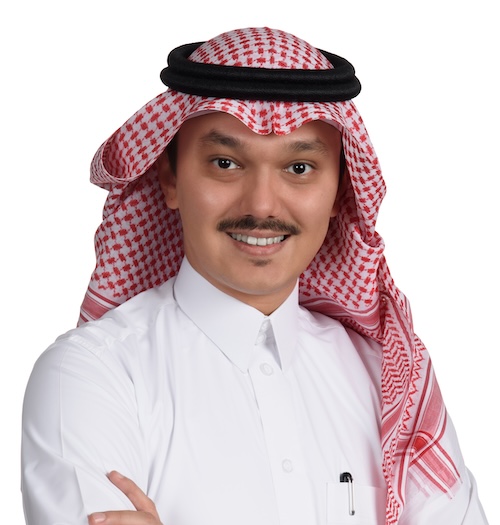KAUST startup Saee delivers logistics innovation, reflecting University’s entrepreneurial impact

KAUST startup Saee, a last-mile delivery company recently acquired by Estimkan Holding, exemplifies how research-driven entrepreneurship is reshaping Saudi Arabia’s economy. More than a business success, it reflects KAUST’s expanding role in cultivating innovators and building ventures that attract investment and advance Saudi Vision 2030’s national innovation goals.
For Dr. Tariq Alturkestani, a KAUST alumnus and key figure in Saee’s growth, the University has been instrumental in both his academic and entrepreneurial development — shaping his business acumen.
“KAUST has been a meaningful and positive place for me,” he said, adding his KAUST journey started in 2008 when he was selected for the KAUST Gifted Student Program (KGSP), which earned him a four-year ticket to Penn State University for his undergraduate degree in computer science — a field he continued to pursue at KAUST for his master’s (2013-14) and Ph.D. (2015-20).

Dr. Tariq Alturkestani, KAUST alumnus and co-founder of Saee, helped grow the logistics startup from a campus venture into a nationally recognized company worthy of acquisition.
While at KAUST, Alturkestani learned a great deal from exceptional faculty members, including then-dean of the Computer, Electrical and Mathematical Science and Engineering (CEMSE) Division, Professor Mootaz Elnozahy, who instilled in him a strong sense of research discipline. In addition, the regular encouragement and support Alturkestani received from his academic advisor, Professor David Keyes, proved invaluable as he began to explore entrepreneurship.
In 2016, Alturkestani’s longtime friend from Jeddah, Eihab Nassier, joined the Nine‑Tenths accelerator program — a government-run Human Resources Development Fund initiative that KAUST hosted before launching its own TAQADAM Startup Accelerator. His venture, a carpooling app for working Saudi women, needed a technical co-founder. Though Alturkestani’s research focused on the energy sector, the idea sparked his interest. The two partnered and, with early support from KAUST programs, transformed the concept into a startup that would soon evolve and scale into something much bigger.
A 2017 royal decree allowing women to drive meant the company had to quickly adapt. Fortunately, said Alturkestani, a boom in the Kingdom’s e-commerce sector offered alternative opportunities for a logistics startup with a fleet of freelance drivers. “We found that logistics for parcel delivery was a missing element. We took care of it by enhancing delivery optimization.”
Busy road to success
While pursuing his Ph.D. at KAUST, Alturkestani also served as Saee’s Chief Technology Officer. Nassier, for his part, was a lecturer at the University of Business and Technology before becoming CEO. Together, they established a warehouse and workforce in Jeddah and an overseas office in Islamabad, Pakistan, for the technical team and programmers. Despite competition, the startup grew and completed three investment rounds by 2020, raising nearly US$3 million in total.
Then the pandemic hit, and demand surged. “During COVID-19, we scaled from three to 14 warehouses in 18 months and tripled parcel volume to 100,000 shipments per month. At our peak, we had around 150 fulltime employees in addition to around 500 freelancers covering 80 percent of the Kingdom.”
This growth directly contributed to job creation and strengthened Saudi Arabia’s logistics sector.
Another “advantage” of the COVID-19 lockdown was that it gave Alturkestani time to complete his dissertation, and he graduated from KAUST in 2020. He then moved to Jeddah, became co-CEO alongside his business partner, and after two years transitioned to the sole CEO. Around that time, the company made its next big pivot, starting to deliver delayed luggage for Saudi Airlines. It now operates across four airports — Jeddah, Riyadh, Dammam, and Medina.
“We secured a grant through the National Technology Development Program’s ‘Connect’ initiative — designed to bridge innovative [small- and- medium-sized enterprises] with large corporates — to showcase our delayed luggage delivery solution for Saudia Airlines.”
During fundraising for the airport services venture, Alturkestani was approached by Arzaq Plus — a hospitality supply-chain company servicing hotels, restaurants, and cafés. Arzaq’s platform helps small businesses lower costs through group purchasing. Seeing strong synergies, Alturkestani agreed to a combination in late 2024. Arzaq is now collaborating with Foodics to integrate ordering into point-of-sale devices — another unfolding opportunity for Saee.
“We’ve consolidated operations under a new holding company that owns both Arzaq and Saee, and we’re now launching a supply-chain financing arm within the group — closing the loop from procurement and delivery to financing.”
KAUST matters
According to Alturkestani, KAUST provides an environment that bridges deep tech and entrepreneurship — enabling researchers to transform academic expertise into viable market solutions. Looking ahead, he sees an even greater opportunity for the University to strengthen its focus on commercializing research by pairing strong R&D with business skills such as budgeting, scaling, and selling — a crucial step toward advancing the aspirations of Vision 2030.
“Doing the research is only half the battle. The other half is pure business — figuring out pricing, scaling, and actually getting the product into customers’ hands,” he said, adding that the University’s drive and resources provide excellent opportunities for industrious scholars to ideate and transform possibilities into marketable and exportable products and solutions. He sees KAUST as a place where entrepreneurial ideas can take root and gain traction.
Building on KAUST’s momentum, Alturkestani anticipates significant opportunities emerging across areas such as health and wellness — key priorities for the Kingdom’s future. He is especially excited about KAUST’s recent designation as a vaccination center. He envisions a future where the University’s biological research leads to vaccines produced locally in Saudi Arabia. “KAUST has generated a wealth of breakthrough research that’s just waiting to be translated into market-ready technologies.”
Saee’s journey is one of many showing how KAUST-backed startups are turning research into scalable, real-world impact — contributing directly to the Kingdom’s innovation economy.

